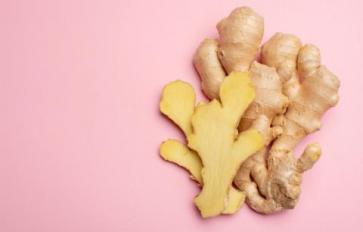
Join Basmati.com every week for a Q&A session with one of Basmati’s practitioners, Melissa Hill (FDN-P)! We know that there is a lot of confusing information out there, which can make applying health advice overwhelming. Sometimes, it’s best to ask a practitioner directly, so each week we’ll cover a common health question!
Do you have a health question you’d like to ask? Write to us at editors [at] basmati [dot] com () and your question could be chosen and featured in a future column!
Q: Help! My hair is thinning. My doctor says all my lab work is ‘normal.’ What can I do?
A: Good question. Many people ask me about this. Thinning hair could be a sign of thyroid disease as well as many other things. Lack of proper nutrients and vitamins could affect hair growth, as well as stress, change in diet, change in hormones, and genetic influences.
Yes, thinning hair is one common symptom of thyroid dysfunction, which is why your doctor would want to check on that. It is worth checking into too, especially if you have multiple signs or symptoms, but we don’t want to just blame the thyroid. The truth is, ‘classic thyroid symptoms’ may not even be something wrong with the thyroid but rather another organ or system upstream of the thyroid. Often times, what we consider ‘thyroid symptoms’ are really the result of an imbalance or dysfunction in the adrenal glands, pituitary gland, hypothalamus, gut, immune system, or liver.
FDN® practitioners work to address the person as a whole, finding healing opportunities by uncovering deeper imbalances and dysfunction, and then we focus on what the body really needs in order to build health.
If your hair is thinning, it likely needs more nourishment. And if for some reason your body is not delivering the proper nutrients there, either from poor digestion, assimilation, congested delivery channels, or congested drains and filters (which in FDN® we use functional lab tests to figure out), you can supplement with the missing nutrients and start to apply nourishment from the outside using oils.
Our hair, like our skin, is the end product of our nutrition and all we take in. Lack of luster and growth of the hair could mean a hang up somewhere internally. The first thing to look at is what your intake is. That is, what foods/drinks are you consuming? Are you are eating a healthy balanced diet for you with supportive nutrients? What kind of stress are you taking in, and are there places you can reduce your stressors? The next step is to look at your digestion. If you’re not digesting your food properly, even if you are eating healthy, you might not be absorbing or be able to assimilate the nutrients your body needs for strong hair growth. Then we would look at your liver function and levels of toxicity. If your liver is congested or over-burdened by poor food, environmental chemicals, or other toxins, these could be blocking your nutrient reception or congesting the channels of nutrient delivery to the hair. The liver is also key to look at in this case because of its close relationship with thyroid hormones. What do I mean by that? The thyroid gland produces the thyroid hormone T4, but T4 needs to be converted into T3, which is the useable form that all the cells in your body need to fire up and do their job. And it turns out that about 80% of this conversion of T4 to T3 happens in the liver. So, it’s important that the liver not be bogged down in order to keep producing proper thyroid hormones to charge up your cells for hair growth and everything else.
What can you do in the meantime to support hair growth and texture?
Include specific nutrients like Biotin, which is known for improving growth of hair, skin and nails. Also, proper amounts of B-vitamins, Zinc, Vitamin D, Iron and Omega 3s all play a role in hair growth. So, if you are not getting them from your diet, supplementing can be an option for you.
Collagen protein also helps to grow hair, skin, and nails as it contains the protein and amino acids that are critical for hair growth. You can get it in an easy to use powder form and take it as a protein powder easily added to your morning coffee or tea.
Castor oil also helps improve and encourage hair growth by nourishing the hair follicles so the hair that is produced is thicker and stronger. Apply it to your scalp and let it soak in. Read more about it here and here.
Ayurvedic herbs and herbalized oils are another great option. Use a base oil infused with nutritive herbs known to support hair health and massage that oil into your scalp and hair to deliver it right to the roots. Bhringaraj is one of the most common herbs used in Ayurveda; known as ‘king of the hair,’ it helps to maintain healthy hair growth, as well as maintain the hair’s color and luster.
Essential oils, like lavender, rosemary, and clary sage, can also be diluted in a carrier oil like Argan oil and applied topically to encourage and support hair nourishment and growth. You can tailor the combination of oils to your specific situation and needs.








